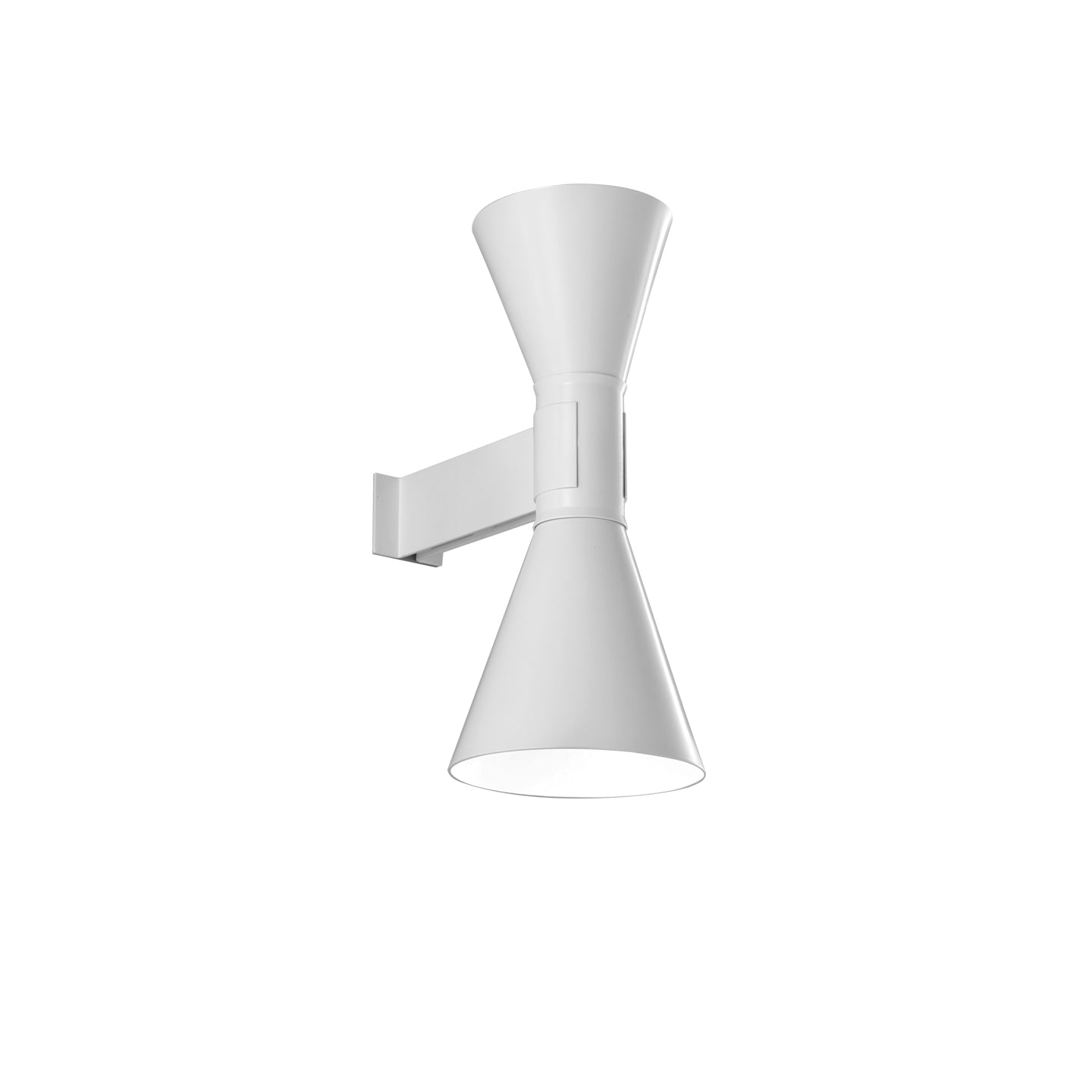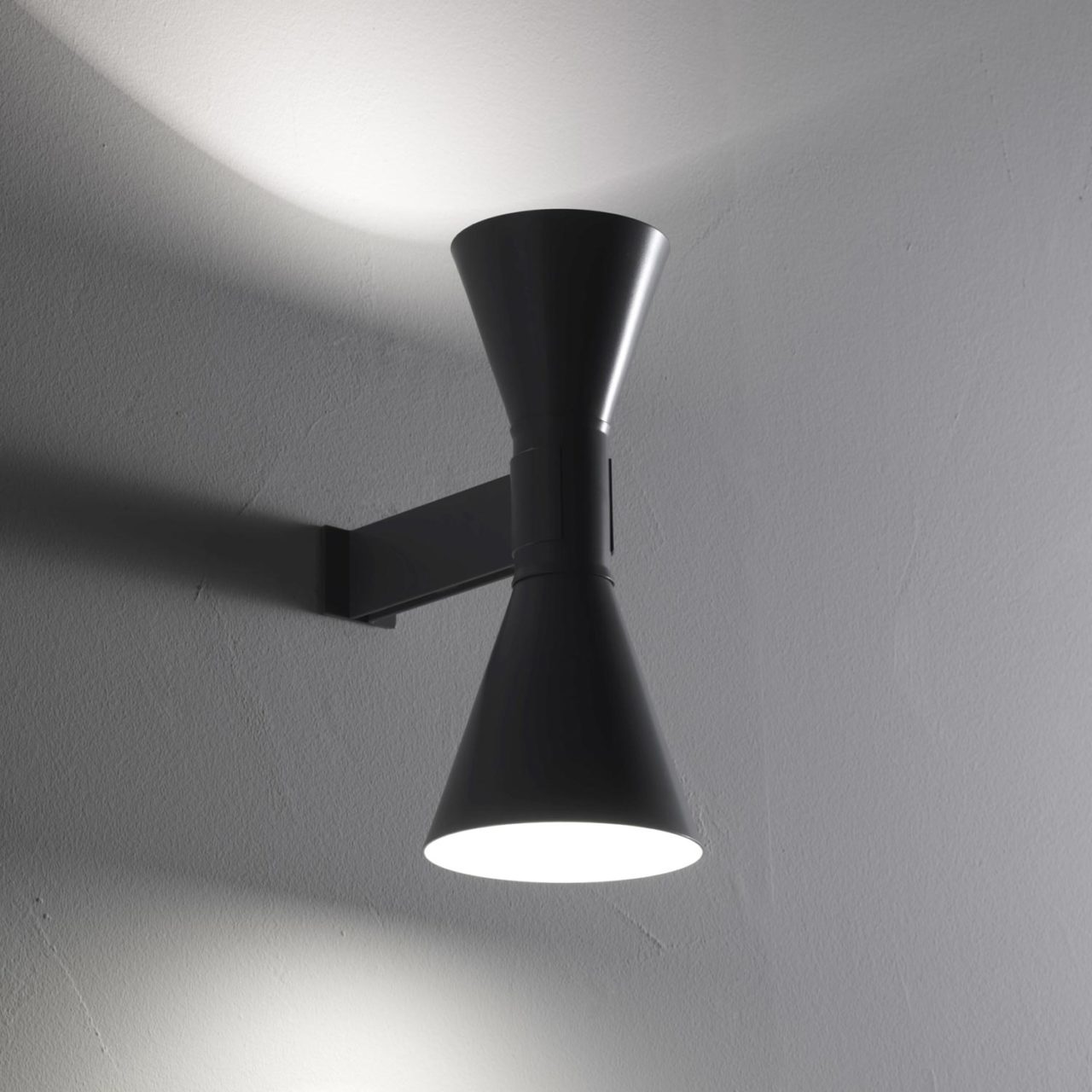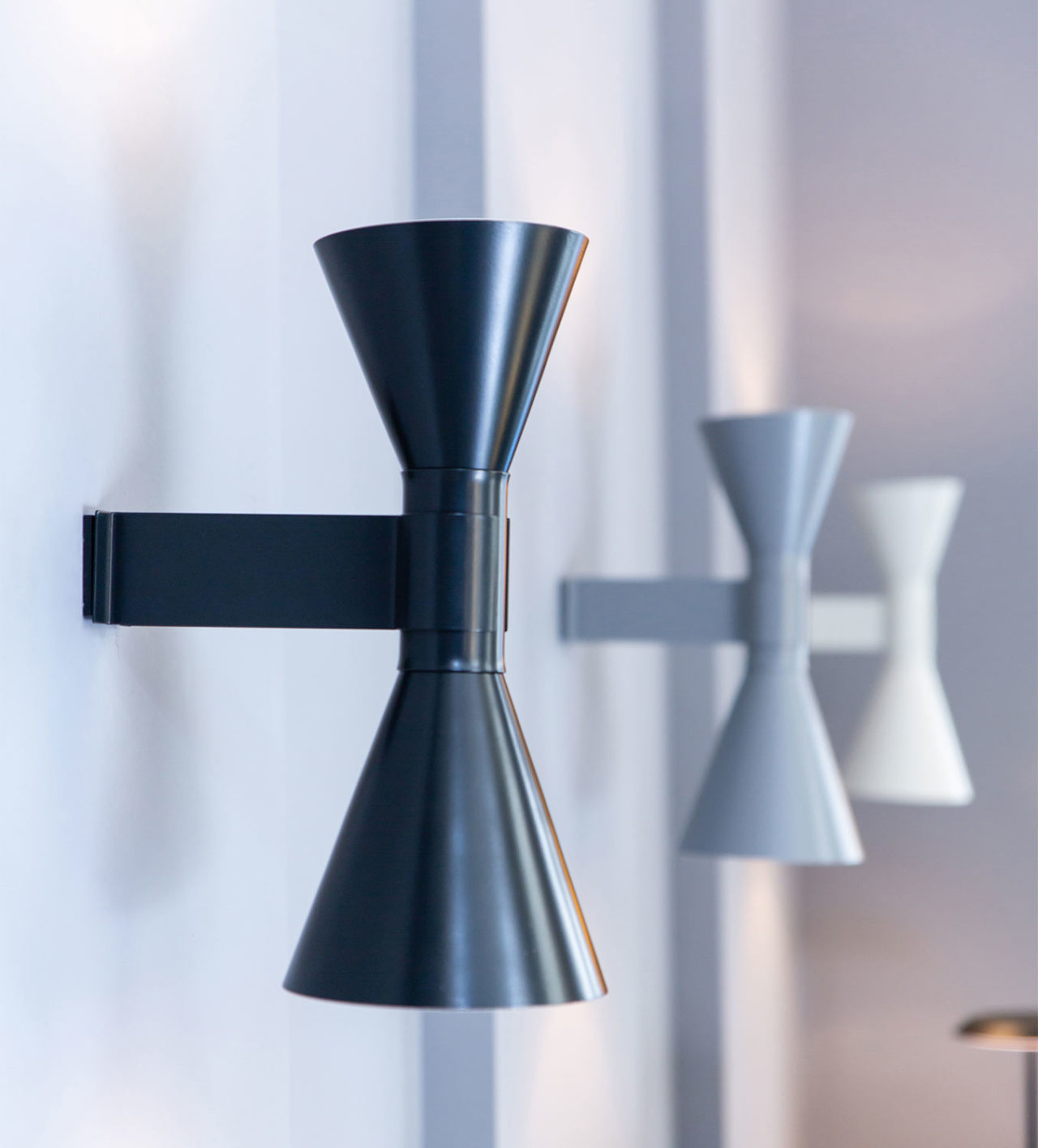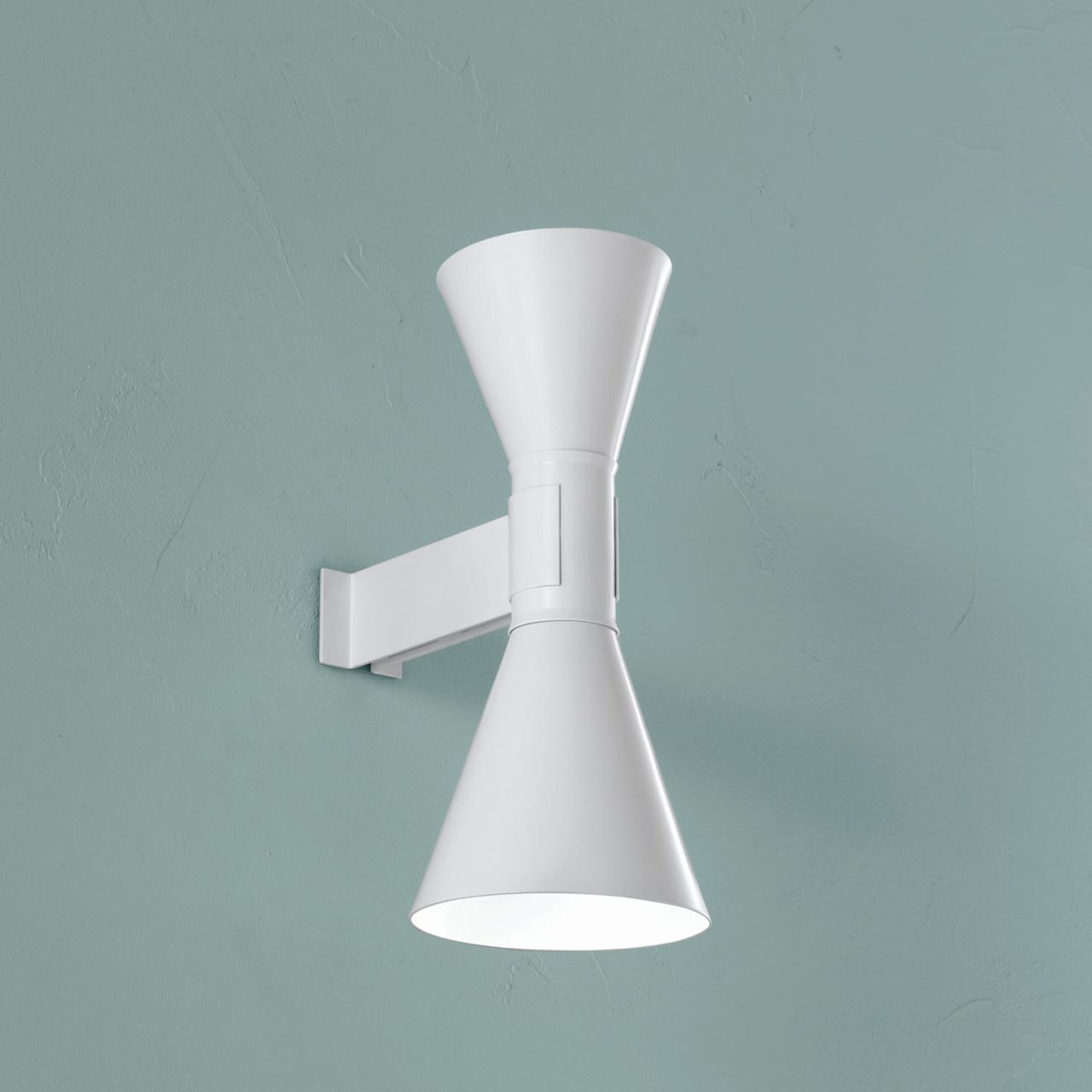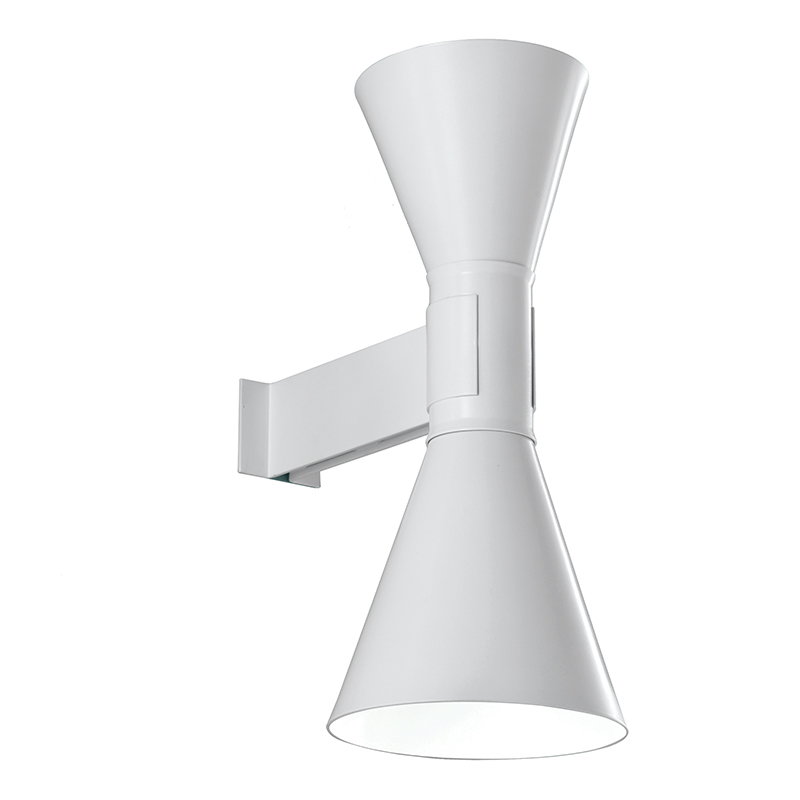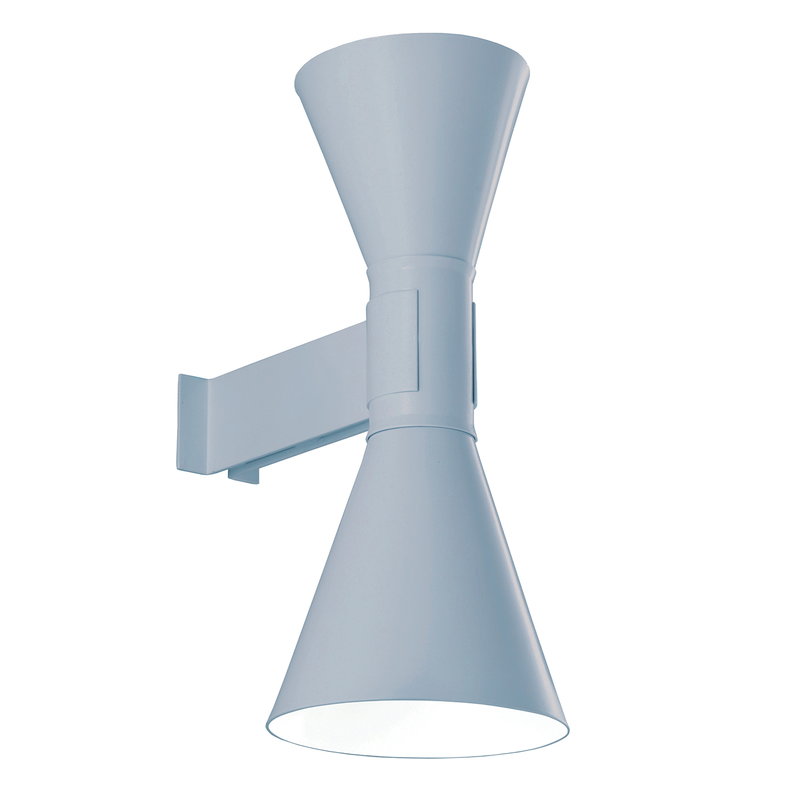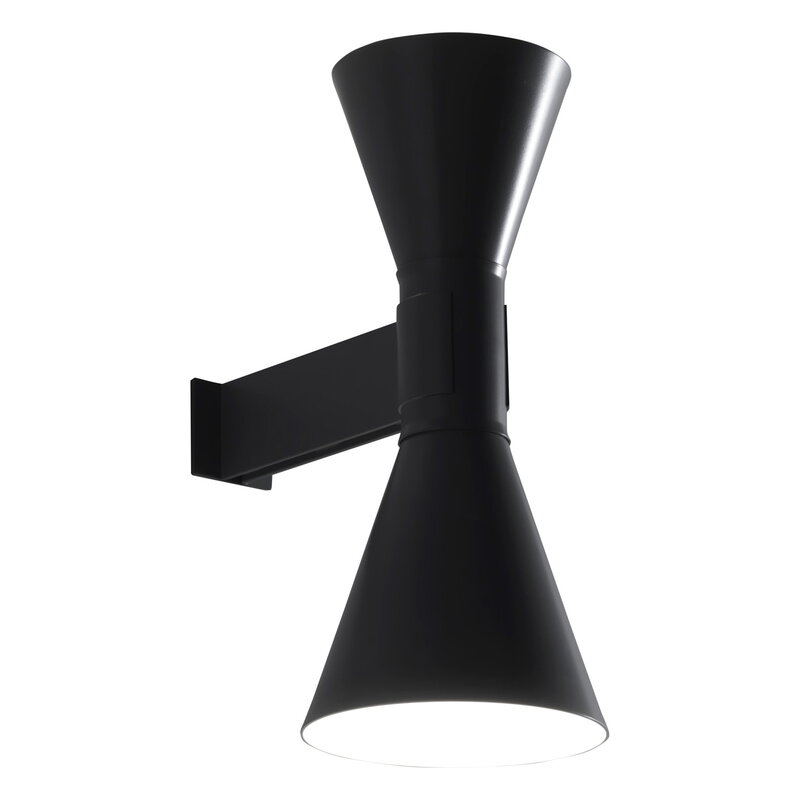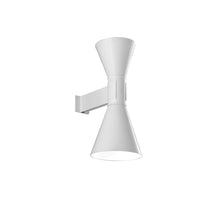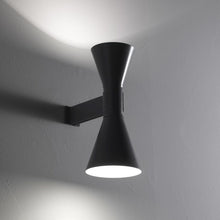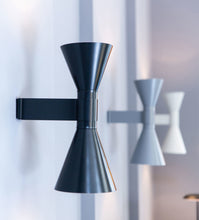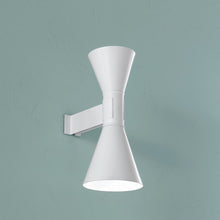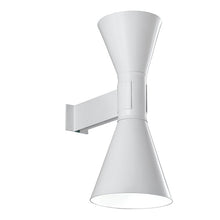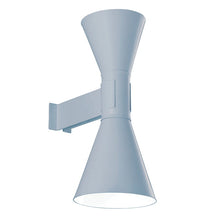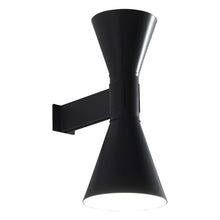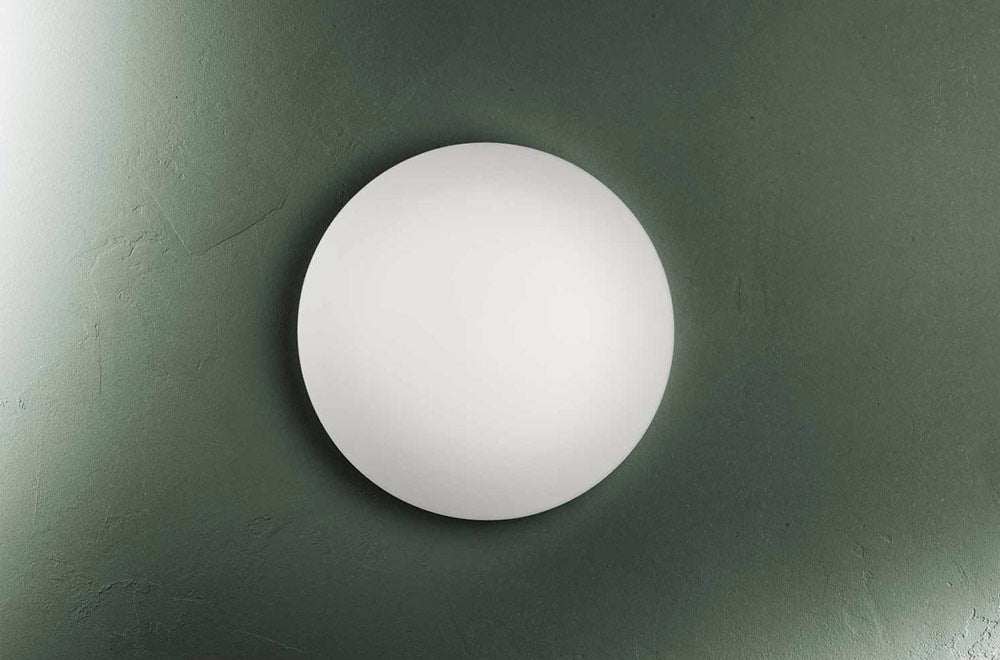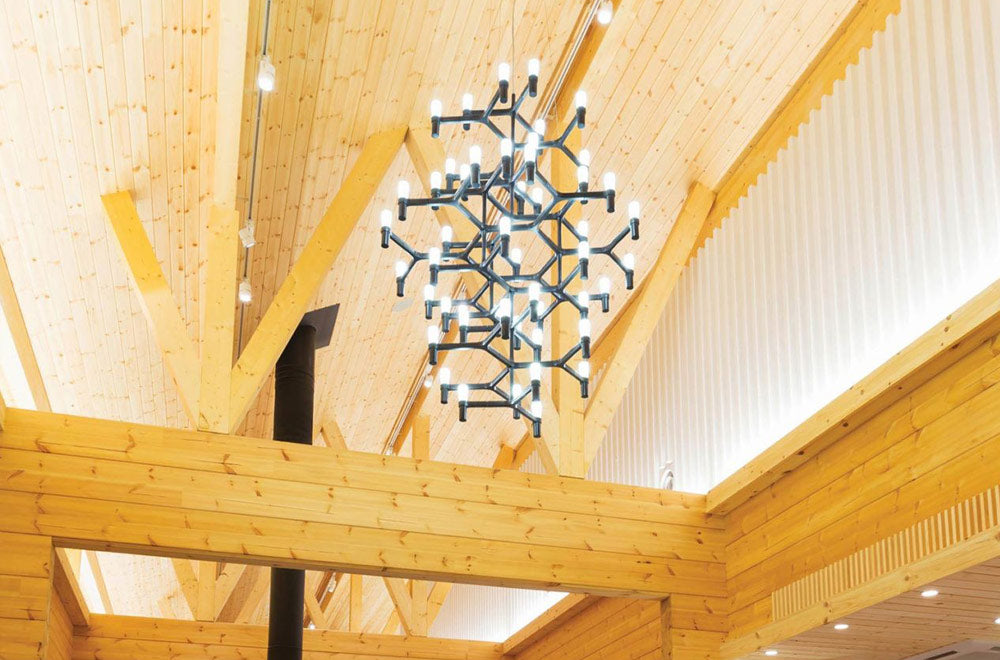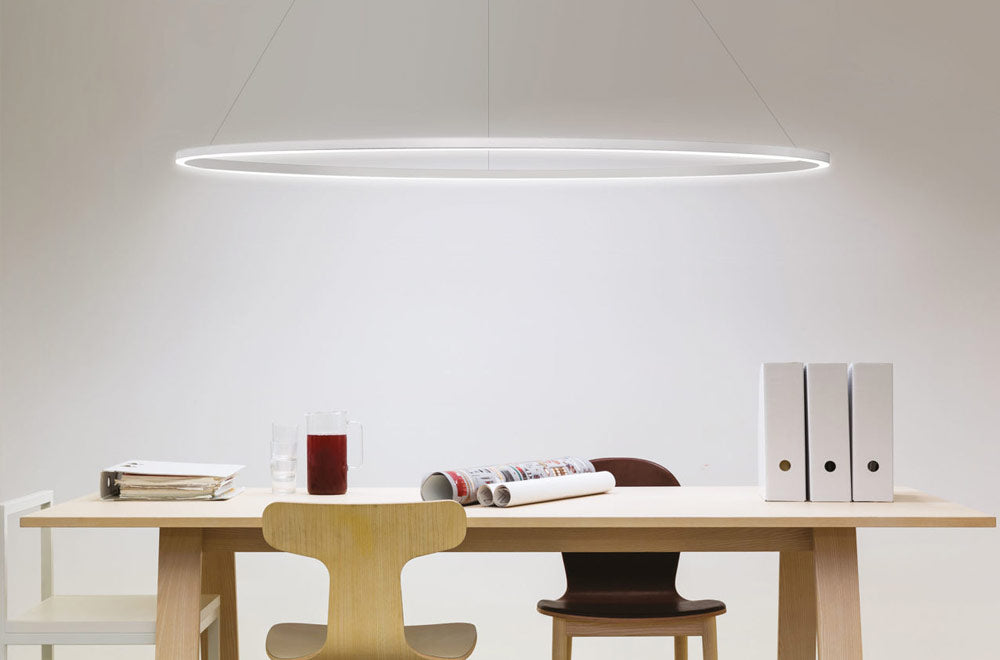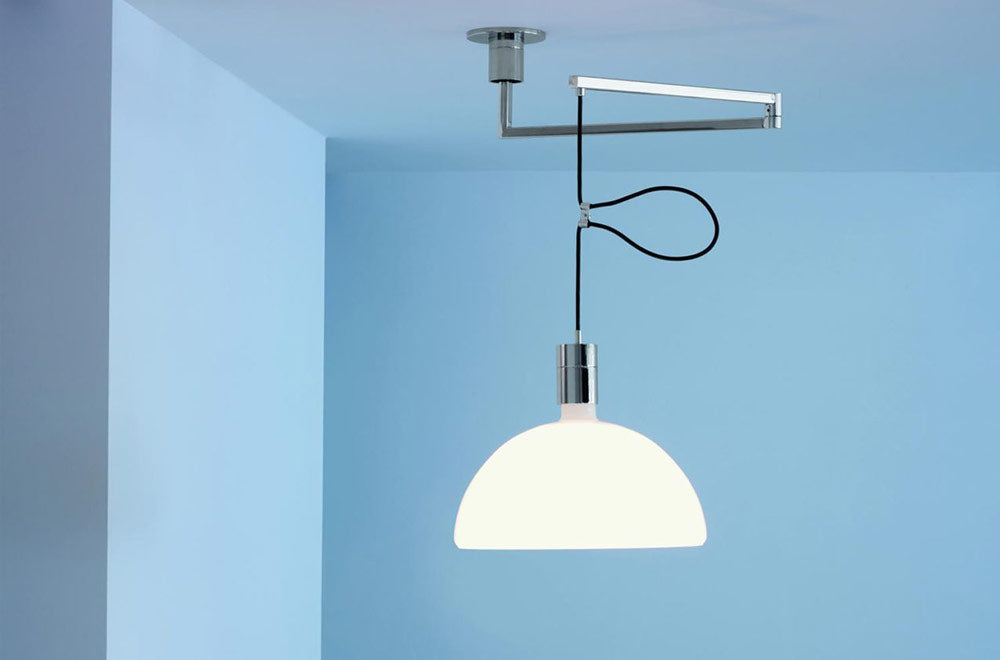Nemo Lighting’s Applique de Marseille is a French classic of lighting design from 1952. The French designer Le Corbusier, a pioneer of functional and modern design, designed the Applique de Marseille wall lamp for his own apartment in Paris. The lamp consists of two cone-shaped aluminum shades which direct the light both up and down, creating clear and beautiful light beams that highlight the interior in an interesting way.
Top cone 14cm dia
Bottom cone 17cm dia
28D x 40H cm
aluminum painted
Charles-Edouard Jeanneret, known as Le Corbusier, was born at La Chaux-de-Fonds, in the Swiss Jura, in 1887; he died in France, at Cap Martin, on the French Côte d’Azur, in 1965.
Early in his career his work met with some resistance owing to its alleged «revolutionary» nature and the radical look it acquired from its «purist» experiments; in time , however, it won the recognition it deserved and it is still widely admired. His message is still being assimilated by an ever increasing number of people in the profession, but his far-out avant-garde attitudes should be interpreted with due consideration for the use of rational systems in his planning method, evidenced by extremely simple modules and formes based on the functional logic.
«Functionalism tending not so much to an exaltation of the mechanical function at the expense of the symbolic, as to the rejection of symbol that he now considers outmoded and insignificant and the restoration of the pratical function as a symbol of new values»(¹)
In his activities as town-planner, architect and designer, his method of research continued to develop, at times going to the opposite extremes of a rich plastic idiom.









